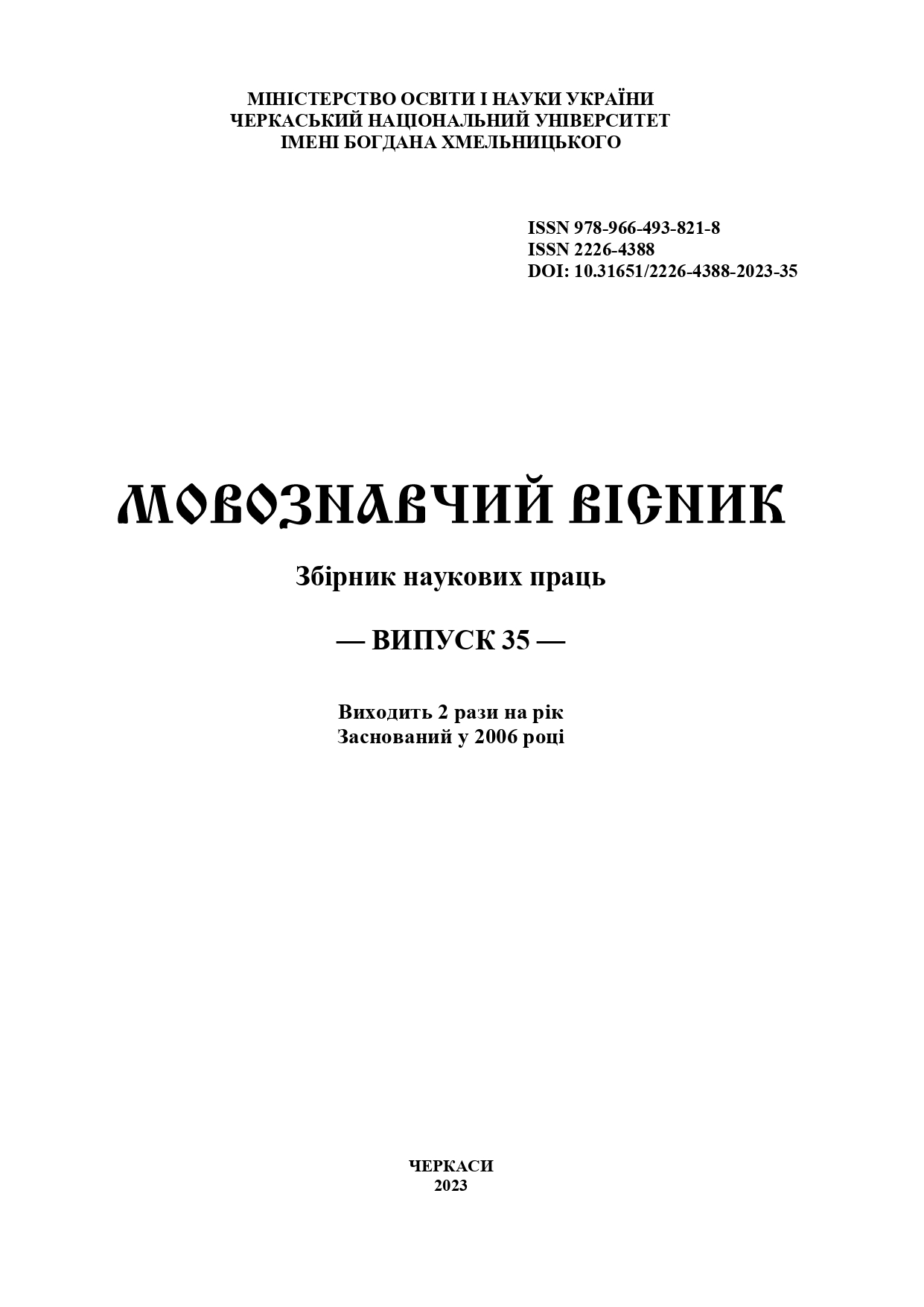COMMUNICATIVE DEVIATIONS CAUSED BY THE WAR IN UKRAINE
Main Article Content
Abstract
Introduction. In the article, we tried to demonstrate the main reasons for the emergence of communicative deviations in social discourse against the background of the war in Ukraine. The most famous communicative trends of the wartime are analyzed. Radical changes taking place in communicative relations form a new reality for the country and its citizens. We are all participants in communicative formal acts, and if the communicative act is created incorrectly, in violation of the norms relevant to structuring, we get deviations in terms of understanding, and therefore in creating another block of communicative information.
The purpose. Forms of communicative deviation have a wide range of manifestations in connection with the variety of social and linguistic norms that may be violated. With such complexity and diversity of deviations, researchers consider it necessary to pay attention to the need to clearly define the boundary of what is normal, and what is illegal, pathological and exceeds the socially established “limit of tolerance” of communication.
Main results of the study. Under the influence of the war on the consciousness of Ukrainians, the entire modern world is experiencing a communication revolution, Internet communication is globalizing, the phenomenon of virtuality, behavioral and communication models are being modified. In this reality, a person is restructured, acquires new knowledge, his perception of the world changes, a new way of thinking about language appears, a kind of neologization of the Ukrainian language takes place, linguistic terminology is developed, linguistic creativity is updated. It is on this basis that communicative deviations are formed.
Originality. The concept of “deviation” is understood as a sociological, philosophical and psychological concept. A classic example of social deviance can be legal idealism and legal nihilism, which contain deviations from the generally accepted norm of behavior.
Conclusions and specific suggestions of the author. Linguistic deviations are based on the conflict between cognitive and linguistic, that is, a flexible, changing way of thinking and a formalized, visualized way of its expression by means of idio-ethnic language. Communication is considered successful and effective if it is adequate, that is, sufficient understanding must be achieved, from the point of view of the communicators. Deviations related to language competence are largely determined by the specifics of lexical and grammatical semantics, and deviations related to communicative competence are determined by communicative semantics and “properly” pragmatic factors. The current political and social situation signals the emergence of more and more deviant communicative situations.
Article Details
References
Бацевич Ф. Основи комунікативної лінгвістики : підручник. Київ : ВЦ «Академія». 2009. 376 с.
Домрачева І. Мовні девіації в українських засобах масової інформації. Вісник Донецького національного університету. Серія Б. Гуманітарні науки. 2015. № 1(2). 507 с.
Дяків Х. Комунікативна девіатологія в Україні: огляд проблематики. Науковий вісник Східноєвропейського національного університету імені Лесі Українки. 2016. Вип. 6. 323 с.
Ківенко Н., Лановенко І., Мельник П. Девіантна поведінка: сучасна парадигма. Ірпінь : Академія державної податкової служби України, 2002. 240 с.
Кісіль З., Кісіль Р. Природні та соціальні детермінанти формування девіантної поведінки людини. Соціально-правові студії. 2018. Вип. 1. 357 с.
Макарець Ю. До питання про девіативність текстів українських інтернет-ЗМІ (на прикладі інтернет-видання «Українська правда»). Науковий вісник Міжнародного гуманітарного університету. Сер. : Філологія. 2018. № 32. Т. 3. 158 с.
Мішеніна Т. Мовні девіації інтерферального характеру в системі сучасної української мови. Філологічні студії. Криворізький державний педагогічний університет. 2014. Вип. 11. 316 с.
Ставицька Л. Українська мова без табу. Словник нецензурної лексики та її відповідників. Київ : Критика, 2008. 435 с.
Тищенко О. Мовна концептуалізація небезпеки та ризику в науковій та наївній моделях світу: до проблеми лінгвістики безпеки. Науковий репозитарій Львівського державного університету безпеки життєдіяльності. 2017. 307 с.
Штельмах М. Інтерв’ю в системі жанрів сучасної українськомовної комунікації : автореф. дис. ...канд. філол. наук: 10.02.01 / Київ. нац. ун-т ім. Т. Шевченка. Київ, 2008. 18 с

